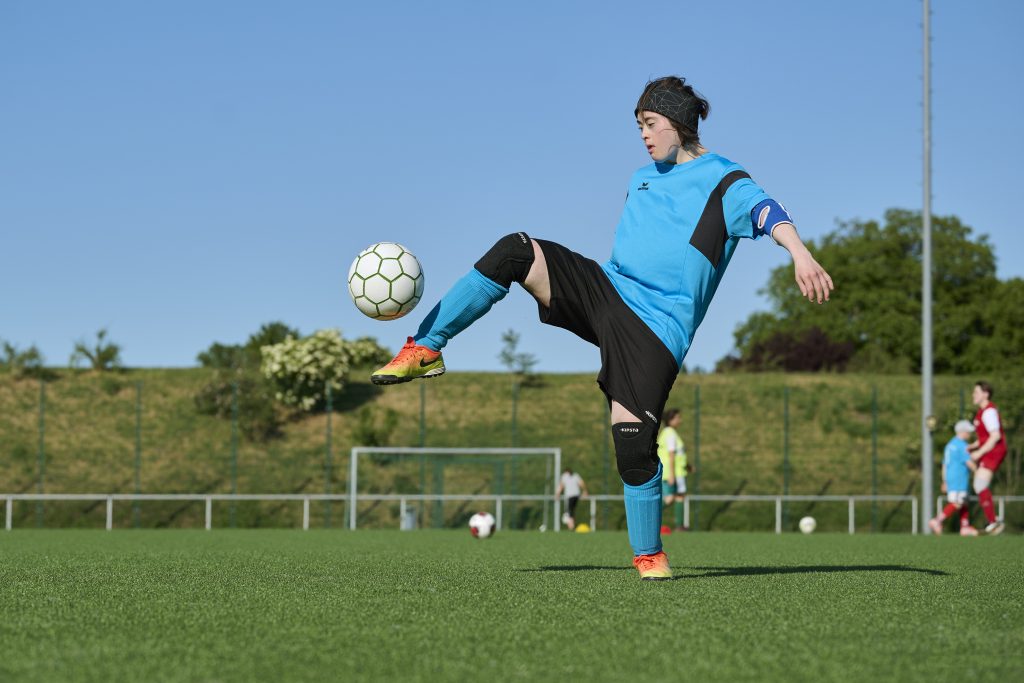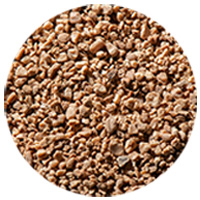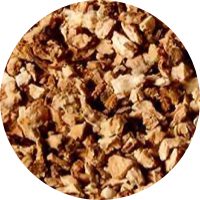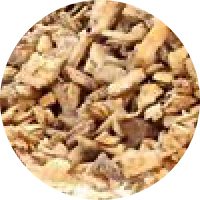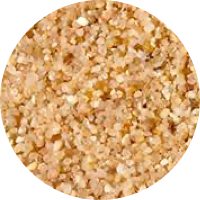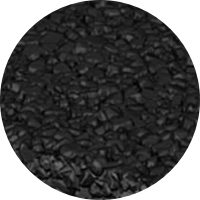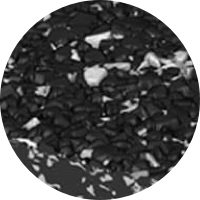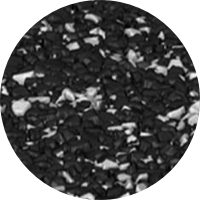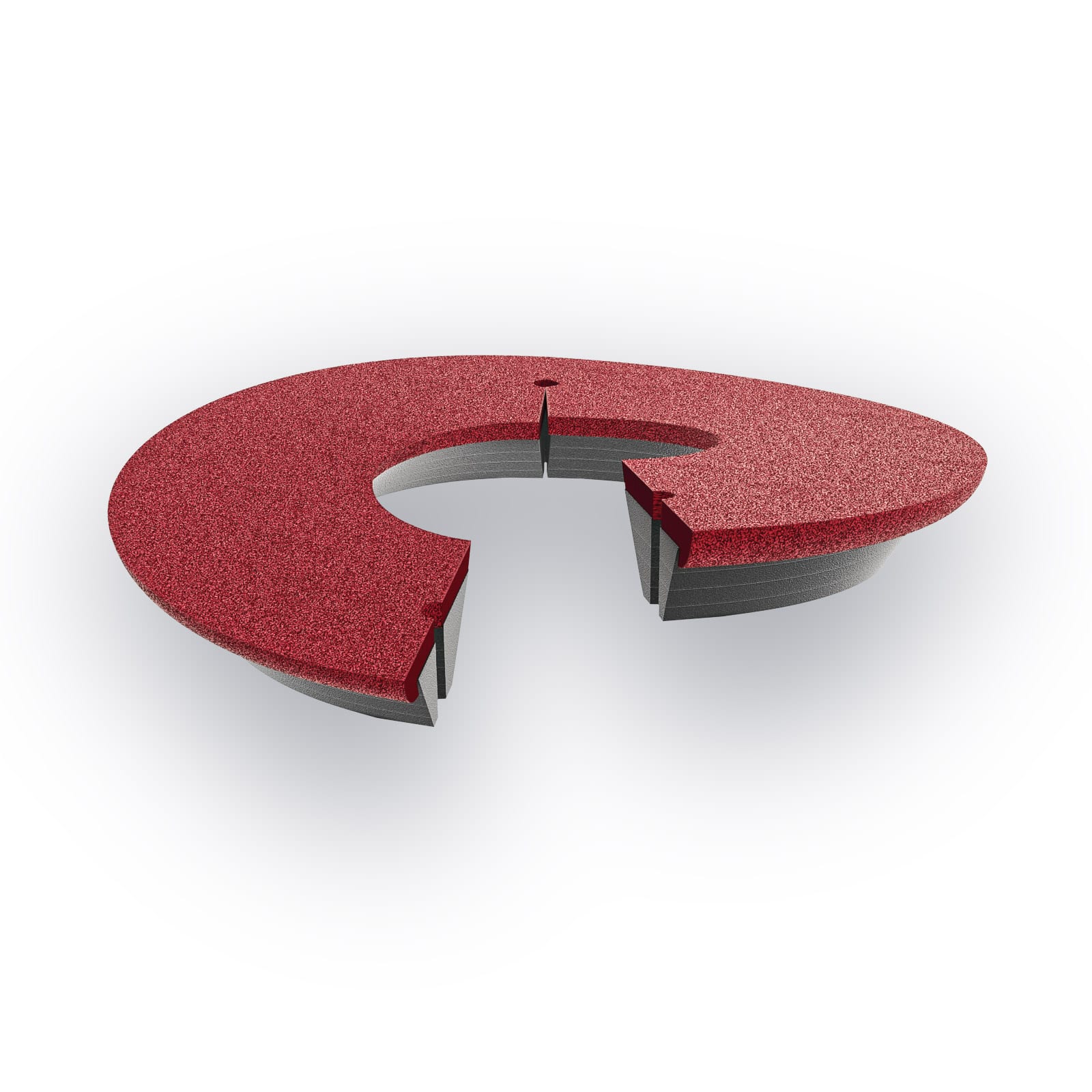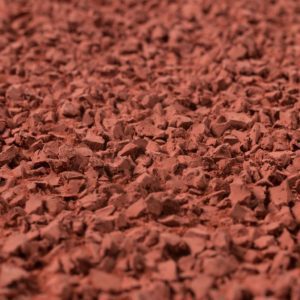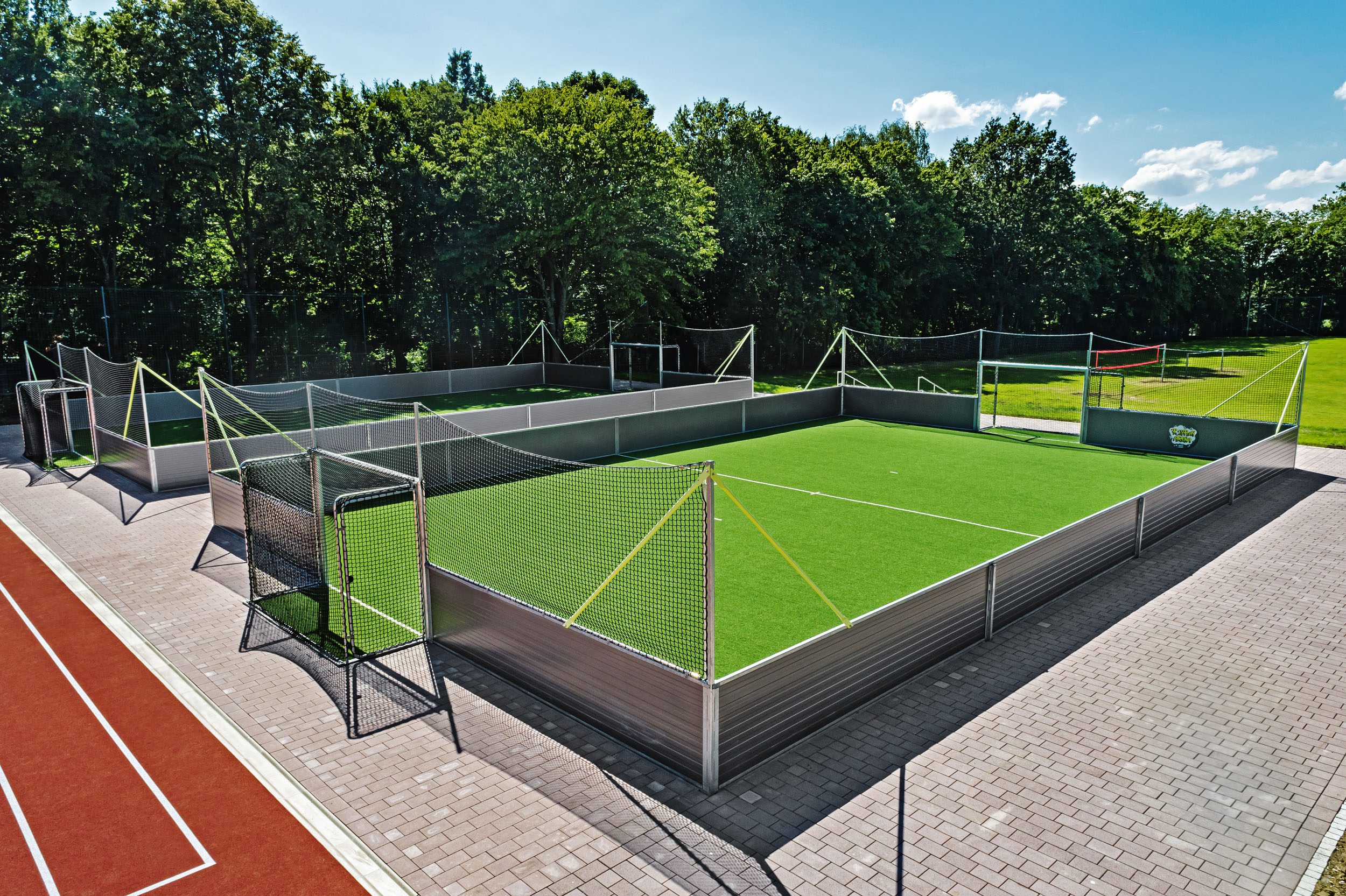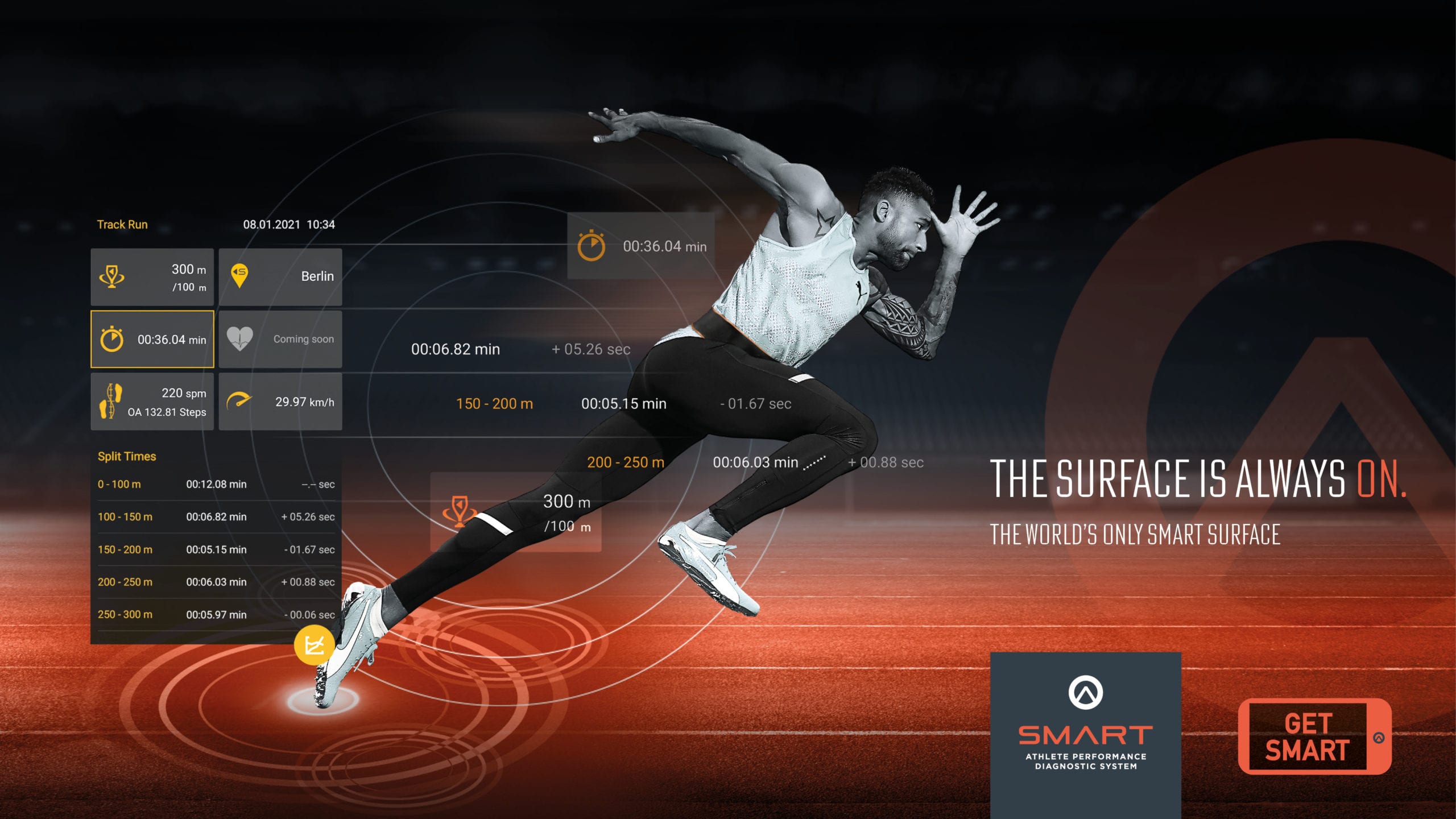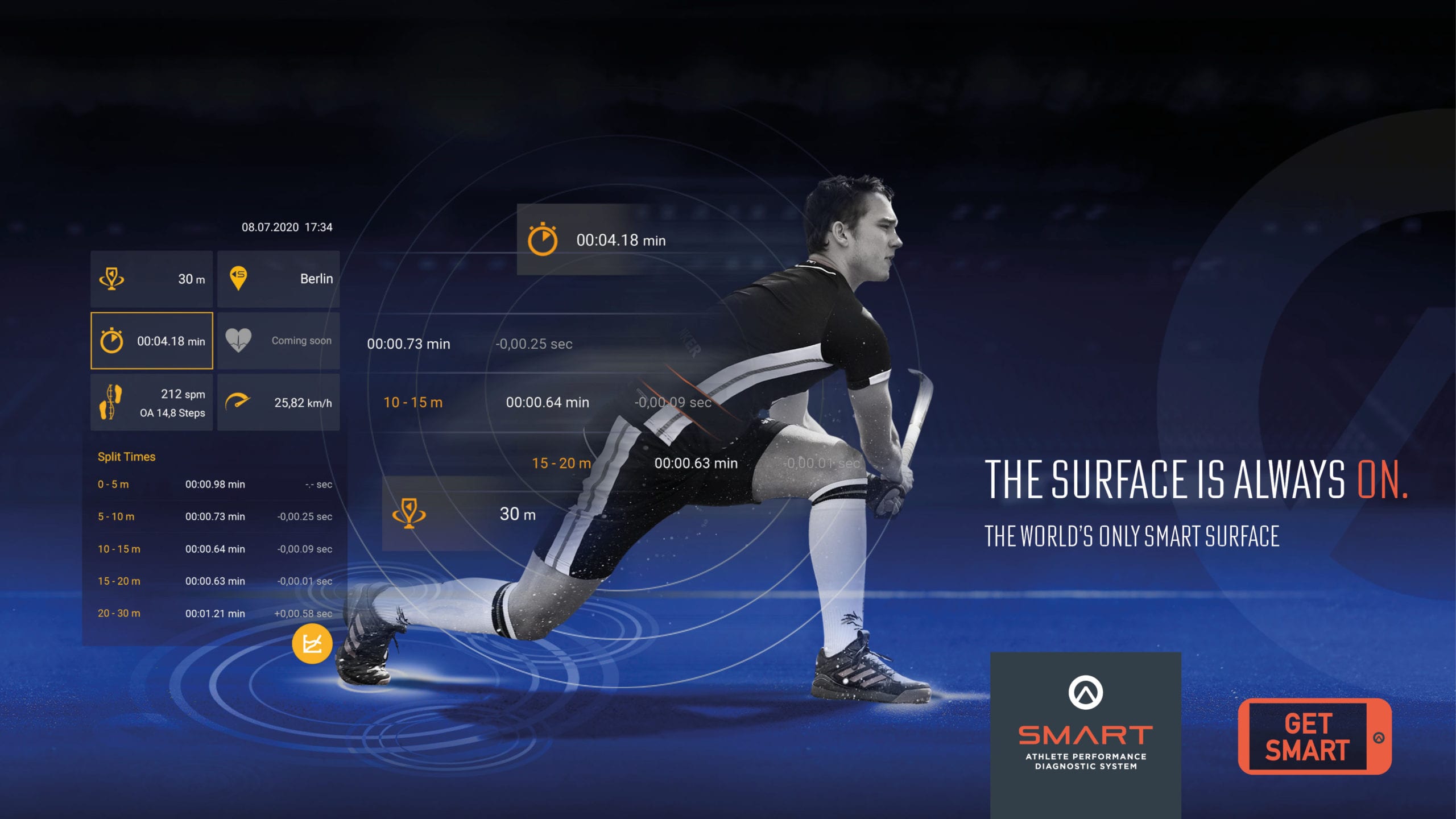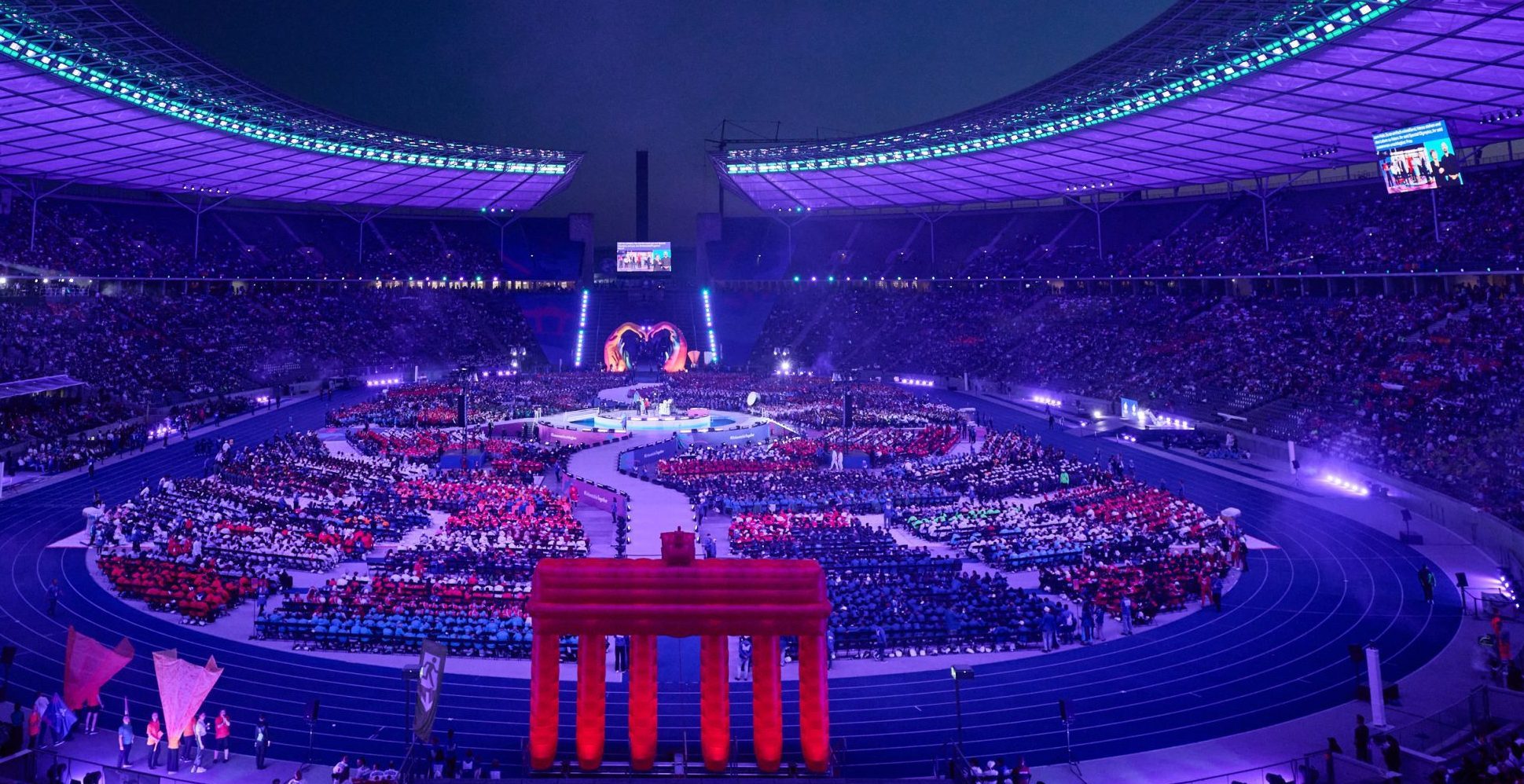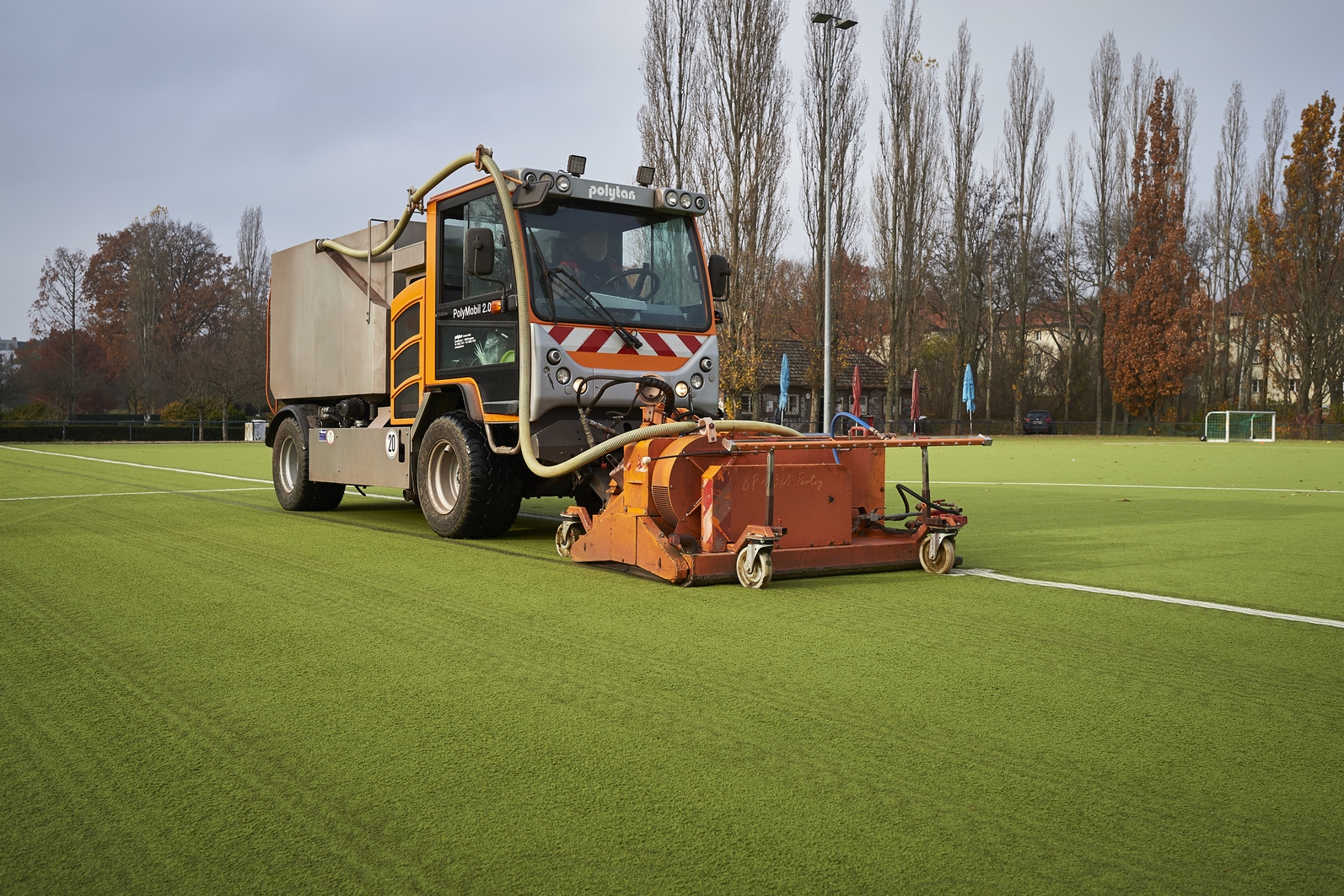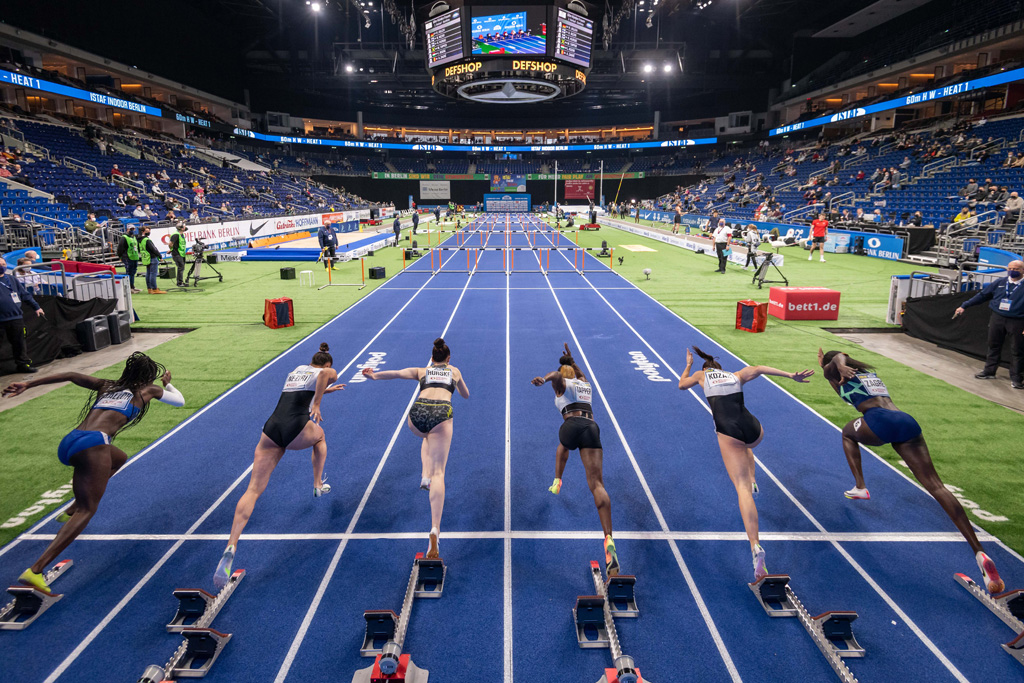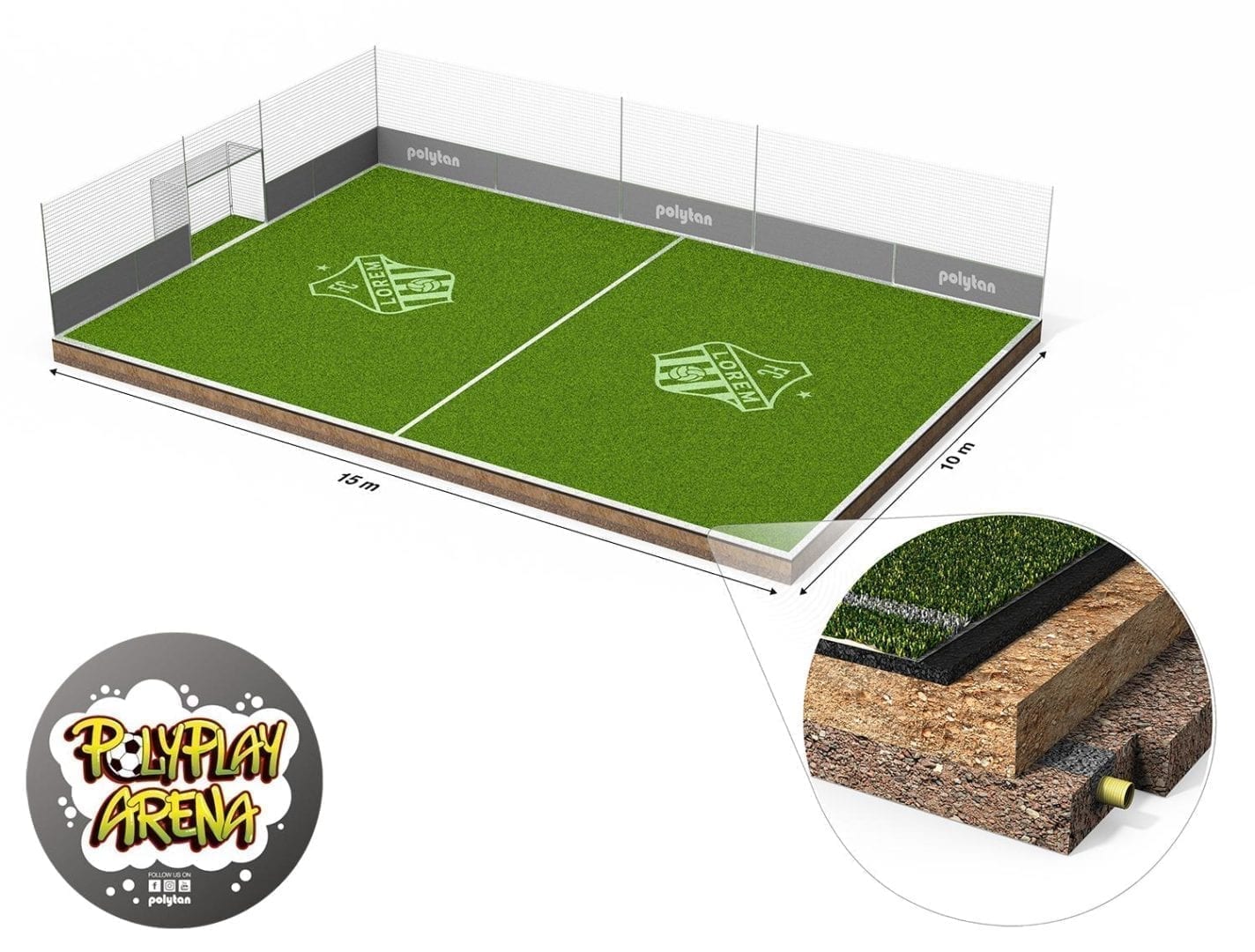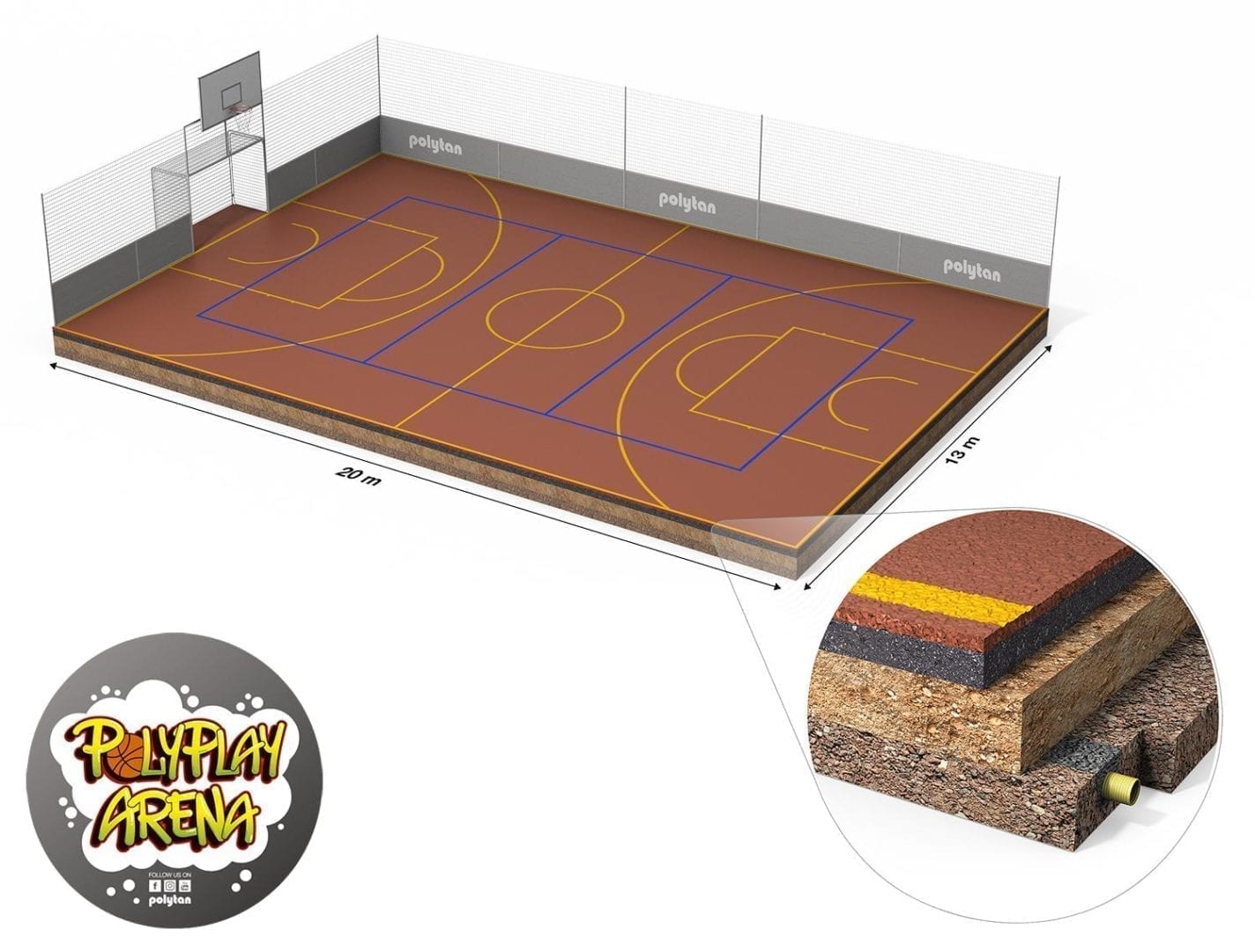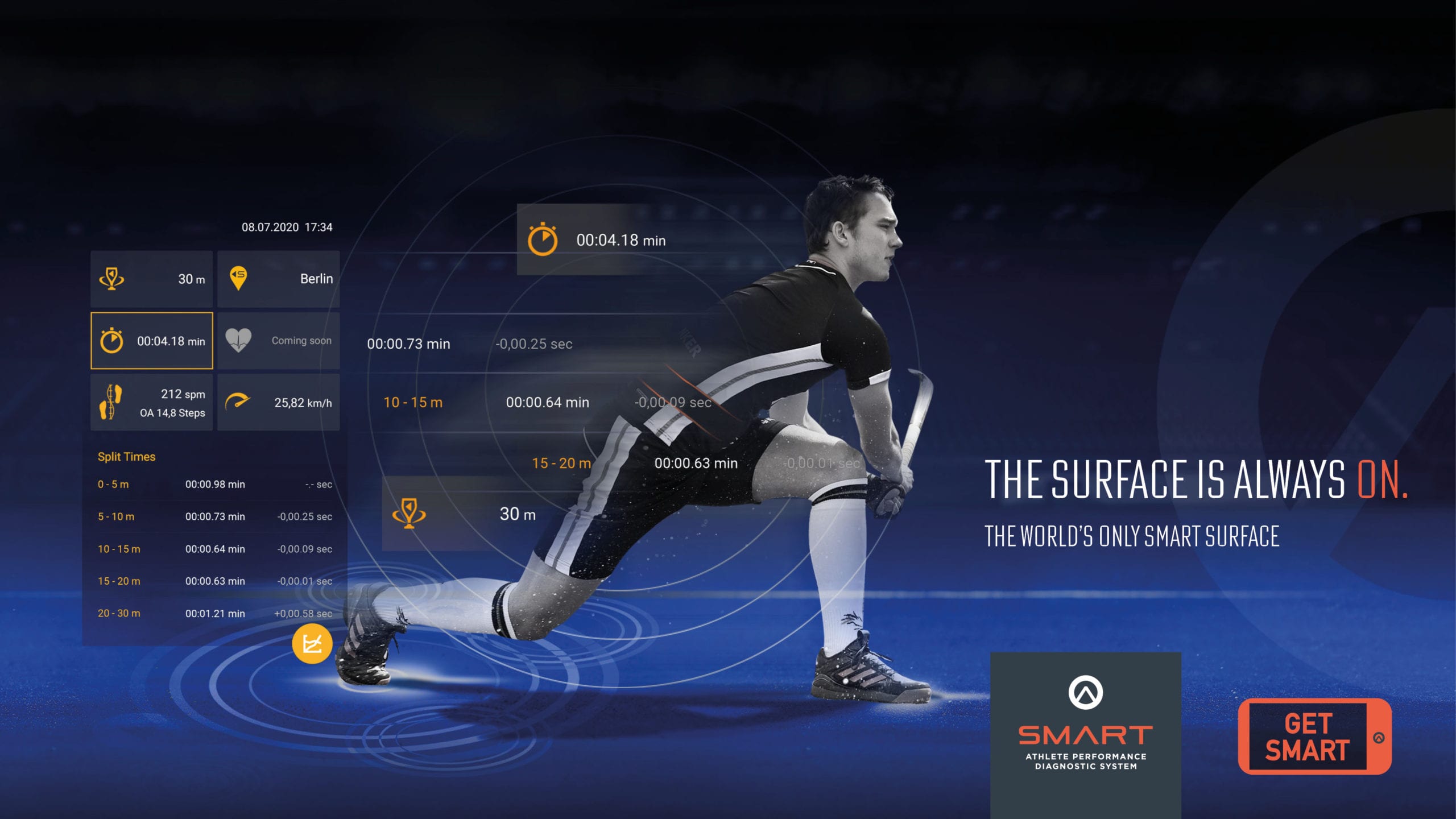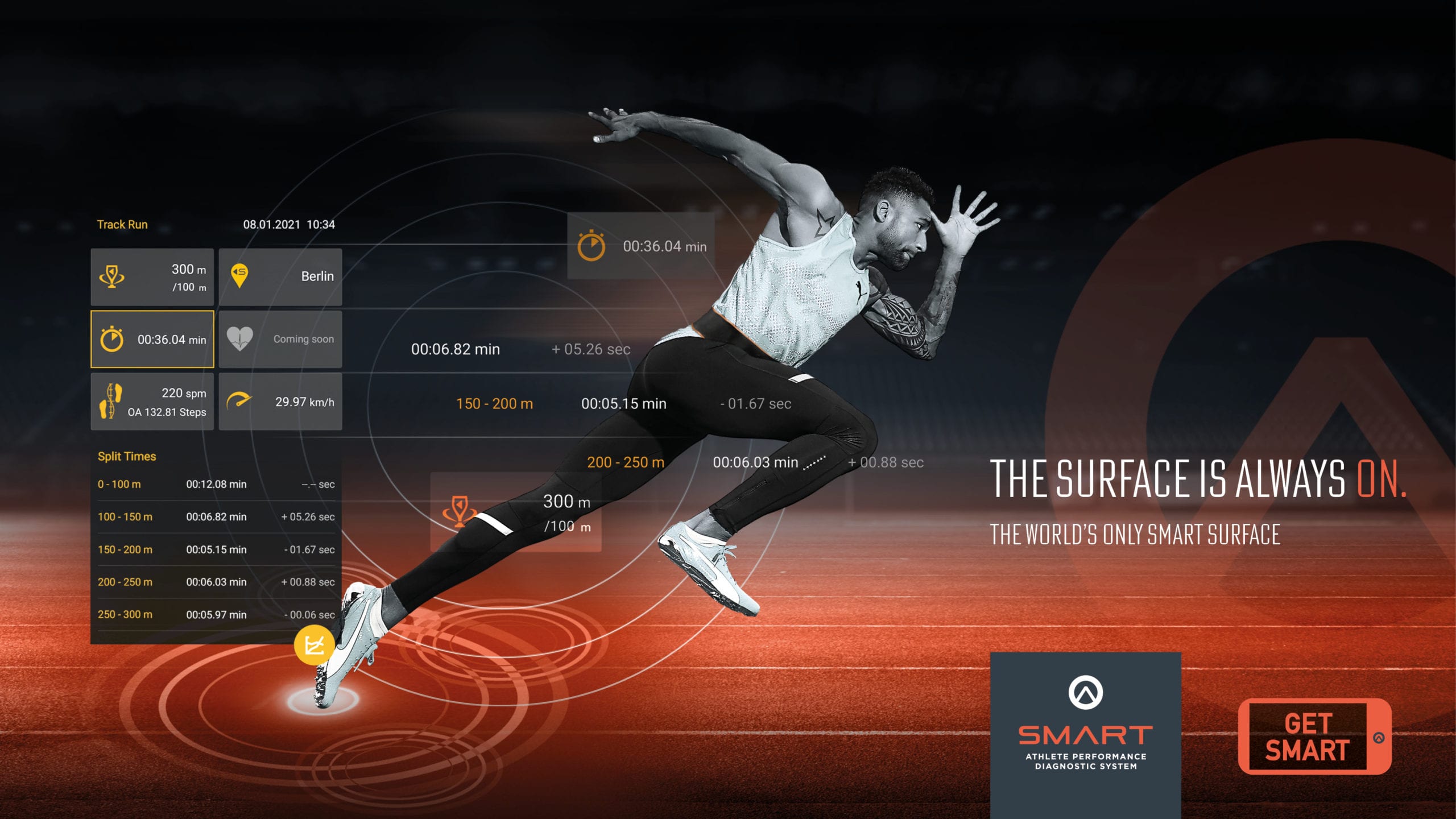Sol Rein-Saunders talks about trisomy 21 and her love for football
At the end of June, fireworks marked the finale, not only of an incredible sporting event, but a milestone for inclusion. Polytan and its sister company SYNLawn were official supporters of the Special Olympics World Games Berlin 2023, and several of the competitions took place on Polytan sports surfaces. The images showing the joy with which 6,500 athletes performed, supported by 9,000 family members and 3,000 coaches, as well as carers, went around the world. 4,000 medals were awarded during the games, and 100,000 admission tickets sold. More than 18,000 volunteers from around the world supported the World Games in Berlin, among them was 25-year-old Sol Rein-Saunders, who has trisomy 21 and is a passionate athlete and artist.
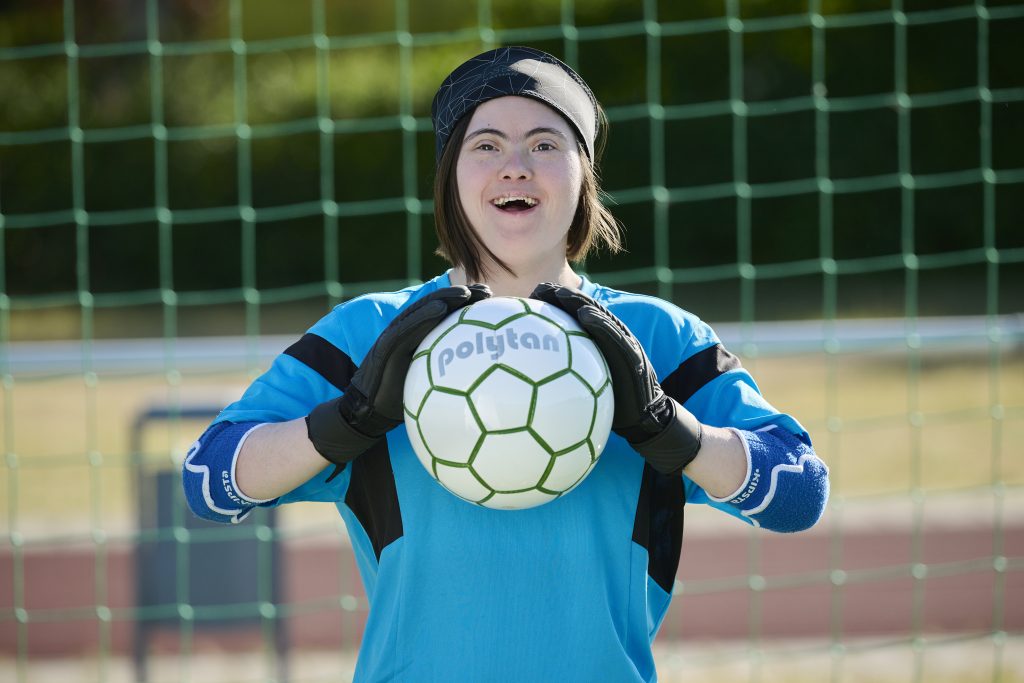
I am Sol Rein-Saunders. I am a goalkeeper, which gives me a lot of strength and especially joy. I used to play as an outfield player and it was great. Now I play in goal, and it’s even better. This is my home.
ON TOP: What do you like about being a goalkeeper?
Sol Rein-Saunders: As a goalkeeper, I not only defend the goal, but my team as well.
ON TOP: What skills do you need to train to be a good goalkeeper?
Sol Rein-Saunders: Techniques such as crossing, diving, breakaways, blocking, and especially mental focus.
ON TOP: Where do you learn about these techniques?
Sol Rein-Saunders: Now and then, I watch YouTube videos from goalkeepers who give tips on technique that I can implement.
ON TOP: And how else?
Sol Rein-Saunders: Through good, hard training.
ON TOP: Do you like to watch football? And which team do you like?
Sol Rein-Saunders: Yes, I like it a lot. I drink beer and eat crisps and have fun. But I don’t have a particular team that I like. I support the team that wins at the end. That way, I’m always on the winning side.
ON TOP: Who are your favourite goalkeepers?
Sol Rein-Saunders: Different goalkeepers, like Manuel Neuer. Not just him, but others too, like Marc-André ter Stegen.
Sol Rein-Saunders is a member of “Frau am Ball Berlin e. V.”, a charitable football club run by Lebenshilfe. There, women and girls with and without a disability play football together. The club was founded in 2006. Training takes place regularly on a pitch featuring Polytan LigaGrass Pro, newly renovated in 2021.
ON TOP: How long have you been playing football?
Sol Rein-Saunders: Since 2012. I talked through it all with Lebenshilfe in 2011. That’s when I transferred there.
ON TOP: What is special about your club?
Sol Rein-Saunders: That we have a women’s club where inclusion matters. We stick together and believe that we are a very strong team. We are constantly practising to advance.
ON TOP: How often do you train as a team?
Sol Rein-Saunders: We only train once a week. It used be twice a week.
ON TOP: Do you play tournaments? Or do you play in a football league?
Sol Rein-Saunders: We have won a lot of tournaments and trophies and, yes, we play in the football league.
ON TOP: Have you had any special goalkeeper training?
Sol Rein-Saunders: Yes, I have. Unfortunately, we don’t have an official goalkeeping coach. Anne Fischer (coach at Frau am Ball e. V.) trains me and one of the field players helps me with good tips.
ON TOP: How important is your coach to you?
Sol Rein-Saunders: I have a very close friendship with her. We show each other warmth, affection, and we trust one another.
ON TOP: Do you play on natural grass or synthetic turf?
Sol Rein-Saunders: It depends. But mostly we play on synthetic turf. There is a difference between grass and synthetic turf. On the synthetic turf, we often play with smaller goals and especially with different shoes. The synthetic turf is a firm surface that is not as slippery as the normal grass.
ON TOP: What is the most important thing for an athlete?
Sol Rein-Saunders: Hard work. Believing in yourself and showing an interest
Trisomy 21, also known as Down syndrome, is a congenital chromosomal variation. People with trisomy 21 develop differently from other people, both physically and mentally.
ON TOP: Is trisomy 21 a disability for you?
Sol Rein-Saunders: For me, it’s not a disability, but a good thing. Especially discovering new skills that I can learn.
ON TOP: What abilities do people with trisomy 21 have?
Sol Rein-Saunders: Trisomy 21 gives us incredible strength. We are flexible, sensitive and strong!
ON TOP: What would you like people to know?
Sol Rein-Saunders: That we have rights, abilities and strengths.
Sol is also part of the ZBK, the Centre for the Performing Arts – a project that is unique in Germany. It is home to Circus Sonnenstich, which has around 50 artists in training – most of them with trisomy 21. Further information can be found at www.zbk-berlin.de
ON TOP: You are not just a footballer, but an artist as well, and are currently training to become a circus skills coach. Where do you work?
Sol Rein-Saunders: At the ZBK. Four days a week, I train to be an artist and coach. My work is my passion. I am even financially independent. I get my own money every month. That makes me happy. It is exactly what I wanted, to achieve something on my own.
ON TOP: Is there a difference between being an artist and a coach?
Sol Rein-Saunders: Yes, there is. Being an artist is for yourself, but being a coach means being there for others. As an artist, you focus on yourself.
ON TOP: ZBK showed some of your circus work during the Special Olympics. What exactly did you perform?
Sol Rein-Saunders: A lot of diabolo and escape artist tricks, which we have practised for years. Also dance.
ON TOP: What was special about the Special Olympics?
Sol Rein-Saunders: I found everything very special because everything involves us. It was great that we (Circus Sonnenstich) got to perform on different stages (including at the Neptune Fountain, the festival site for the Special Olympics), and that we could show something special about inclusion to the entire world. The perspective is different when we’re watching. It is very interesting to watch athletes from 190 countries deliver a top-class performance with trisomy 21 and other physical disabilities.
